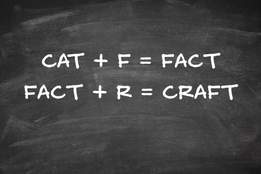pre·fix
prefixed; prefixing; prefixes
1
(ˌ)prē-ˈfiks  : to fix or appoint beforehand
: to fix or appoint beforehand
 : to fix or appoint beforehand
: to fix or appoint beforehand
2
ˈprē-ˌfiks 

prē-ˈfiks
[partly from prefix entry 2]
: to place in front
especially
: to add as a prefix
prefix a syllable to a word
pre·fix
ˈprē-ˌfiks 

1
: an affix attached to the beginning of a word, base, or phrase and serving to produce a derivative word or an inflectional form compare suffix
2
: a title used before a person's name
pre·fix
ˈprē-ˌfiks 

Love words? Need even more definitions?
Merriam-Webster unabridged









Share